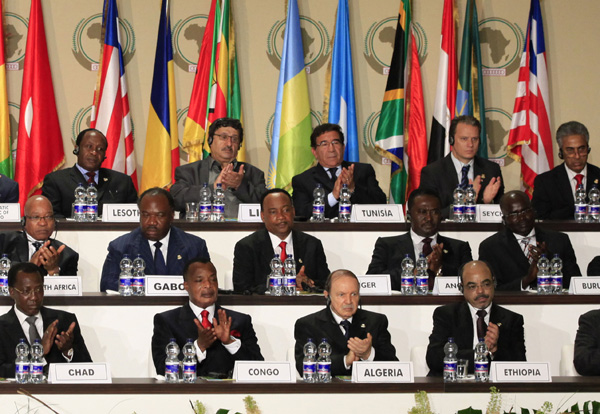
After South Sudan’s independence in July 2011, the two Sudans together occupy a critical geopolitical space linking together the Sahara, the Sahel, the Horn, and the Great Lakes. The post-separation negotiations between Sudan and newly formed South Sudan are therefore vital not only for these two nations’ future bilateral relations, but also for the stability of the region at large.
In Enough’s most recent paper, “The Two Sudans: A Tour of the Neighborhood,” Omer Ismail and Annette LaRocco contextualize the potential effects the post-separation negotiations could have on the nine countries neighboring the two Sudans. The paper emphasizes the critical role international actors, such as the United States, the European Union, and China must assume in both shaping the political and economic dynamics of the region as well as supporting the initiatives of regional actors promoting peace and security. Through an examination of some of the two countries’ most important neighbors and regional relationships, the Enough Project captures the importance of post-separation negotiations in current regional geopolitics.
The paper focuses its analysis on three smaller subsets of the broader region – the North and its neighbors, Egypt, Libya, Chad, and Eritrea; the South and its neighbors, the Democratic Republic of Congo, Central African Republic, Uganda, and Kenya; and the two countries’ shared neighbors, Ethiopia and CAR. The report examines the interactions between each neighbor and the two countries, interrogating both trends in bilateral relationships as well as in relationship to the North-South negotiations process.
“The relationship between North and South Sudan is crucial to the stability of both states and the broader region,” Ismail and LaRocco assert. They stress, however, that if Sudan and South Sudan do not cooperate with one another, they directly undermine the development of peace and prosperity along a vast portion of sub-Saharan Africa. In light of these stakes, the Enough Project concludes its report with policy recommendations pertaining not only to Sudan and South Sudan, but to prominent actors of the region. Recommendations are as follows:
- Collective engagement, support, and intervention from all the neighbors of the two Sudans in the negotiation process to assist the AUHIP and ensure regional stability.
- Ethiopia, Kenya and Egypt, being the neighbors with the most interest and greatest capabilities to influence the outcome of future bilateral relations between Sudan and South Sudan, must continue to drive efforts forward within relevant regional bodies, including the African Union and the Nile Basin Initiative, concerning issues of regional importance, in particular, border security and management of the Nile River.
- Leading regional actors must additionally push for a reduction of violence and permanent solutions to the conflicts in Darfur, Blue Nile, and South Kordofan.
- Regional borders must be strengthened to stop arms infiltration and reduce incursions by the LRA.
Read the full report: “The Two Sudans: A Tour of the Neighborhood”
Photo: Heads of state at an African Union summit (AP)

